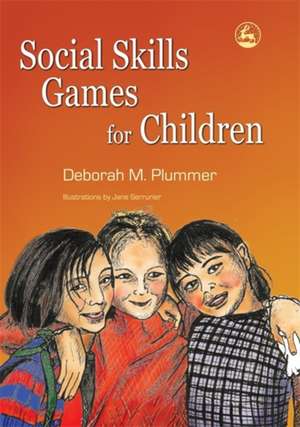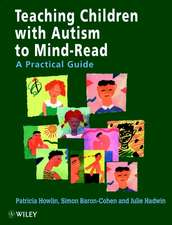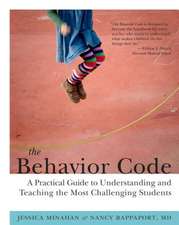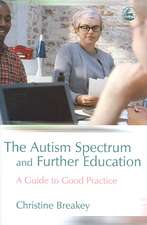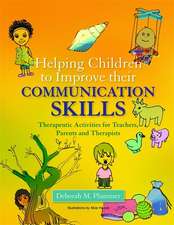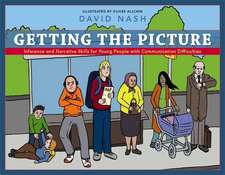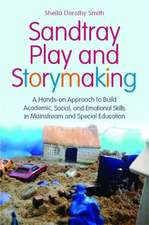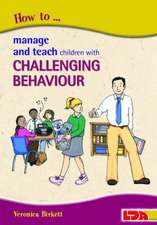Social Skills Games for Children
Autor Deborah M. Plummer Ilustrat de Jane Serrurieren Limba Engleză Paperback – 12 aug 2008
Preț: 139.99 lei
Preț vechi: 169.91 lei
-18% Nou
Puncte Express: 210
Preț estimativ în valută:
26.79€ • 27.97$ • 22.17£
26.79€ • 27.97$ • 22.17£
Carte disponibilă
Livrare economică 15-29 martie
Preluare comenzi: 021 569.72.76
Specificații
ISBN-13: 9781843106173
ISBN-10: 1843106175
Pagini: 176
Ilustrații: 13 illustrations
Dimensiuni: 173 x 244 x 10 mm
Greutate: 0.32 kg
Ediția:1
Editura: Jessica Kingsley Publishers Ltd
ISBN-10: 1843106175
Pagini: 176
Ilustrații: 13 illustrations
Dimensiuni: 173 x 244 x 10 mm
Greutate: 0.32 kg
Ediția:1
Editura: Jessica Kingsley Publishers Ltd
Notă biografică
Deborah M. Plummer has over 30 years' experience of facilitating groups and working individually with both children and adults. Formerly a clinical lead therapist working within the NHS, she also has extensive experience as a senior lecturer in aspects of health psychology and counselling. She ran workshops and short courses on the uses of imagery, games and story-telling in the promotion of well-being. Deborah is now retired.
Cuprins
Foreword by Professor Jannet Wright, De Montfort University. Part One: Theoretical and Practical Background. 1. Introduction. 2. Understanding Social Skills. 3. Why Use Games to Support Social Skills? 4. Structuring the Emotional Environment. 5. Transfer and Maintenance of Skills. 6. Self-reflection and Self-care. Bibliography. References. Part Two: Games for Social Skills. 7. Non-competitive Ways to Choose Groups and Group Leaders. 8. Getting to Know Each Other: Warm-ups and Ice-breakers. 9. Staying on Track: Self-awareness and Self-control. 10. Tuning in: Exploring Effective Listening and Effective Observation. 11. More than Just Talking: Communication Skills. 12. You and Me: Exploring Feelings and Developing Empathy. 13. You and Me Together: Building Co-operation and Negotiation Skills. 14. Got It!: Solving Problems in Group Interactions. 15. Wind Down and Celebrations. Appendix. Subject Index. Author Index. Acknowledgements.
